CAR ACCIDENTS
SUPERIOR LEGAL REPRESENTATION
Atlanta Car Accident Lawyer
Most of us have been operating a motor vehicle for years and know how to drive responsibly. But we’ve driven long enough to know that bad weather, reckless drivers, and unforeseen circumstances can quickly cause accidents. Once you’ve been in an accident, your whole world is turned upside-down. Suddenly, you can’t work, and your days are filled with pain, doctor’s visits, and a complete disruption of your daily routine. To fully recover financially and physically, you’ll need all the help you can get. An Atlanta accident attorney knows every move you need to make for a successful claim and maximum compensation.
At Zdrilich Injury Law, we know that dealing with the aftermath of a car accident can be overwhelming physically, financially, and emotionally. Our expert team of car accident lawyers in Atlanta provides top-notch legal representation and guidance for victims of auto accidents. With years of experience handling successful car accident cases, our unwavering dedication achieves the best possible outcome for our clients.
How Common Are Car Accidents in Atlanta?
Atlanta is known for its thriving culture, expanding growth, and, sadly, its heavy traffic conditions. According to Forbes, Atlanta ranks 16th out of 50 large American cities for “dangerous driving.” The city’s dense population and presence of I-75 with thousands of travelers make road safety a major concern here.
As a consequence,
car
accidents are common here. The exact numbers may fluctuate, but according to the Georgia DOT, thousands of incidents occur each year, ranging from minor fender benders to deadly pile-ups.
These accidents have a profound impact on the victims. Beyond the physical injuries, there are also unseen emotional and psychological effects. The economic devastation can be profound when medical costs, lost wages, and higher insurance rates are factored in.
Common Causes of Car Accidents in Atlanta
With its busy streets and ever-growing population, Atlanta’s traffic complexities are not going away any time soon. Understanding what causes accidents can help drivers avoid their likelihood.
Hazardous Road Conditions
Heavy rain, occasional ice storms, scorching sun in heavy traffic, and construction sites all contribute to dangerous roads. When drivers don’t adjust their behaviors to account for treacherous conditions, bad things happen.
Texting
Despite laws against texting and driving, it is still all too common. Drivers can be seen texting, video chatting, or even browsing social media while behind the wheel. Distracted driving removed focus from the road, sometimes with deadly consequences.
Drunk Driving
We all know someone who drove after too many alcoholic drinks. Many times that person is lucky not to have injured themselves or others while committing a DUI offense. Others have not been so fortunate.
Speeding
Many drivers justify driving at high speeds because they’re busy. But speeding reduces your ability to steer around sudden obstacles or stop when approaching congestion on the freeway. The results can be devastating for everyone involved, including the perpetrator.
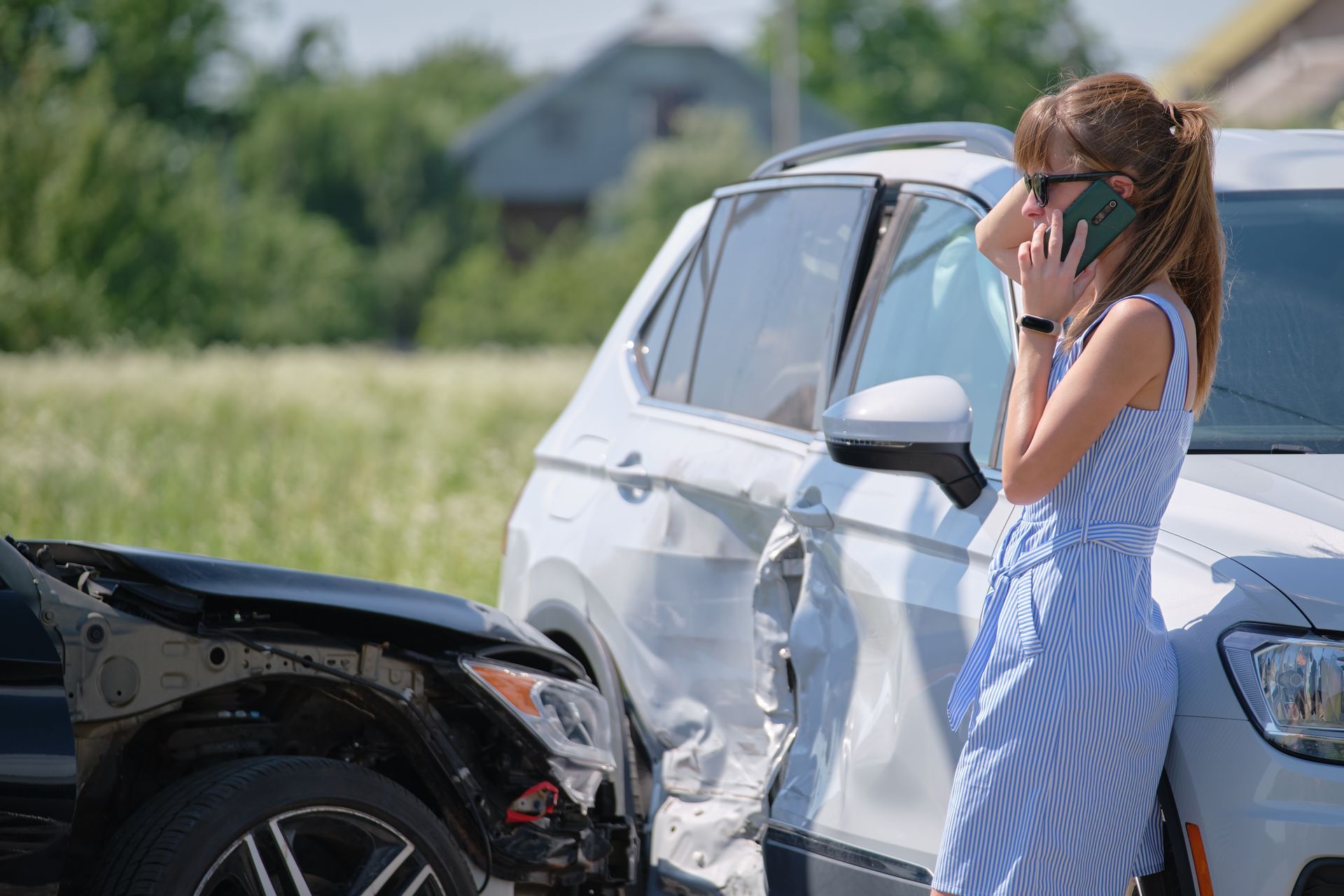
What to Do at the Scene of a Car Accident
Remain Calm
The immediate aftermath of a car accident can be chaotic and surreal. However, it's crucial to remain calm and assess the situation. Check yourself and any passengers for injuries. Your safety and the safety of others is priority number one. If anyone is injured, call 911 immediately. Even if the accident seems minor, it's a good idea to call the police to request an official report, which is critical for insurance claims and legal purposes.
Move to a Safe Location
If no one is seriously injured and the accident is minor, move your vehicles to the side of the road. If a car cannot be moved, turn on the hazard lights. If you’re on a busy roadway and your car can’t be moved, stay inside with your seatbelt on until help arrives.
Gather Information
Once everyone is safe, get contact details from the other driver/drivers, including names, addresses, phone numbers, license numbers, insurance information, license plate numbers, and vehicle details. Try to get witness contact information as well, as they may have photos or video of the incident.
Take Photos & Video of the Scene
With your phone, take detailed, high-resolution photos of the scene, involved vehicles, and relevant road signs and traffic signals. Visual evidence carries weight in the claim process and can be a game-changer in court.
Avoid Admitting Fault
Most people are apologetic in a high-stress situation. But it’s important not to admit any wrongdoing or take the blame at this juncture, as it may complicate your claim and even be used against you during legal proceedings.
File a Report
If an accident causes significant damage, injuries, or death, many states require you to file an accident report. Even if it isn’t mandatory, it is wise. An official report can be helpful when battling with insurers.
Call Your Insurer
Your insurance company must be made aware of the accident as soon as possible. Give them all the documentation you’ve gathered, including photos or videos. Your agent will guide you through the following steps regarding vehicle repairs and handling medical costs.
Get Follow-Up Medical Attention
Injuries after a car accident can sometimes manifest several hours or even days later. Even if you feel fine, it’s a good idea to get a medical assessment. Medical professionals are trained to detect hidden physical damage and begin the necessary treatments. This will help you recover faster and provide detailed documentation of any injuries caused by the accident.
Why Contacting a Car Accident Attorney Is Essential
Emotions can run high immediately following a car crash. You may be dealing with injuries, property damage, insurance claims, and legal hassles. This storm of stress can be overwhelming. That’s when it’s wise to get help from an experienced car accident attorney in Atlanta. Their experience and expertise can guide you through the aftermath smoothly.
Your attorney can help you understand your rights after a vehicle accident. A car accident lawyer specializes in this legal discipline and has in-depth knowledge of the laws applicable to your case. They can inform you about what to expect from the process and all the potential outcomes.
Dealing with stubborn insurance companies is something no one dreams of doing. Adjusters are coached to minimize payouts whenever possible. Without legal representation, your settlement could be less than fair. With the help of a legal expert, you can have peace of mind knowing they will fight for your right to adequate financial compensation to cover all your losses.
A vehicle accident attorney in Atlanta can also accurately assess the value of your claim, including lost wages, medical bills, pain and suffering, and even emotional trauma. Your losses will be calculated, and a claim will be pursued that helps you move forward.
In some instances, your case may end up in court. If that’s the situation, you need legal representation by an attorney familiar with your case and the circumstances. To prepare for court, your attorney will conduct a rigorous investigation, call expert witnesses, and present a compelling case on your behalf. Having a car accident lawyer at this juncture can be the difference between a successful case and a disappointing outcome.
No one ever talks about the emotional and psychological aftermath of a car accident, but it is very real. Having an experienced lawyer take on the legal details allows you to focus on recovery. Your lawyer will deal with the insurers and opposing counsel and submit all required documents to the court.
Some victims worry about the cost of hiring an attorney. But many car accident lawyers work on a contingency fee basis, meaning they only get paid if you win your case. This arrangement not only motivates them to do extraordinary work, but it also eases their financial anxiety.
To sum up, the aftermath of an accident can be challenging for anyone. Hiring a qualified attorney gives you the support and legal guidance you need to seek and obtain the restitution you deserve.
Is It Worth Hiring a Car Accident Lawyer?
Imagine you’ve suffered injuries in a nasty car accident that wasn’t your fault. You are in constant pain from your injuries and see various medical professionals for treatment. This means you can’t work, and the bills are piling up. This can also cause emotional and psychological stress in the home. Add to that the property loss. Now imagine arguing with insurance companies who don’t want to pay you a fair amount to get back on track.
This leads to the pertinent question: Is it worth hiring a car accident lawyer?
The answer is an emphatic yes! In fact, hiring a car accident specialist with personal injury savvy can make all the difference in getting your life back on track. They expertly navigate the legal system, are astute negotiators, and are powerful allies in court. They won’t rest until you are made whole.
As your case proceeds and you end up in a courtroom, how will you fare on your own? Most people don’t understand legalese and become quite confused. That’s where your vehicle accident attorney Atlanta clarifies everything for you so you know what’s happening. This legal guidance is invaluable, especially when you’re still reeling from physical and financial problems.
Your attorney will also refuse a weak settlement from the insurance company. Whereas some clients may be tempted to accept just to have the whole situation end, your attorney will use their knowledge of the law to secure a settlement appropriate for the damages suffered. Insurers fight tooth and nail to pay as little as possible, but your lawyer will fight to get what’s fair for the victim.
Another situation where having an attorney is crucial is shared fault. In many cases, car accident fault isn’t clear-cut, and proving negligence becomes quite complicated. Your car accident lawyer will gather and analyze evidence, such as police reports, video, photos, and witness statements, to build a strong case.
Your legal representative can also keep things calm during a highly emotional period. Crash victims often make snap decisions on the fly that aren’t beneficial to their situation. Having an attorney helps you stay objective and make rational, rather than emotional, decisions.
To conclude, the decision to hire an attorney after a car accident will depend on your circumstances, but the benefits are obvious. From explaining the legal process and minutiae of injury law to fighting for fair compensation for all damages, your lawyer is the compassionate, methodical advocate you need at such a volatile time.
How a Car Accident Attorney Helps You Win
Negotiation Expertise
Accident attorneys deal with hardline insurers every day. They know all the tricks and can anticipate their next move. While insurance companies love to deny payouts, your lawyer knows your rights and the law. This knowledge counteracts the tactics these companies use and empowers them to negotiate effectively on your behalf. Your attorney can secure a fair settlement and, in many cases, far above and beyond what you expected. In short, an experienced lawyer will make a big difference in the outcome of your case.
Proving Liability
Now let’s talk about what really matters in an accident claim: proof. Without proving liability, you have no case. Discovering who was at fault in an accident requires a meticulous examination of the evidence, including accident reports, witness testimony, and possibly accident reconstruction. Your attorney has the resources to gather and analyze the evidence and build a strong case for negligence. Without proving negligence and liability, you won’t win your claim. This is where an attorney becomes not a luxury; but a necessity.
Assessing Your Damages
Accident victims are often unaware of the damages they can claim after a car accident. Compensation is available above and beyond your medical bills. You can seek damages for losing your job, the pain and suffering of life-altering injuries, emotional distress, PTSD, as well as the potential for future medical costs. Your vehicle accident attorney in Atlanta will comprehensively review all your damages and file a claim to cover all your current and future needs.
Representation in Court
While most victims like to settle out of court, there are many instances where this just isn’t possible. Without a fair, realistic settlement, a lawsuit becomes unavoidable. If your case goes to court, your attorney becomes the avenger you need to set things right. They prepare a rock solid case and present it in court on your behalf. Their familiarity with courtroom procedures and insurance company tricks work in your favor. Their presence can significantly influence the outcome of your case and make sure your arguments are heard and understood by the court.
Peace of Mind
Peace of mind while you’re recovering from a car accident is priceless. This is what your lawyer can do for you during what is undoubtedly a traumatic experience. Just knowing that you have a legal expert working on your case puts your mind at ease. They keep you informed about case progress, answer all your questions, and many will make themselves available after hours for urgent matters. Having this support provides mental and emotional relief that is critical to your recovery.
All the practical functions provided by a car accident lawyer Atlanta will help you get through this unfortunate period of your life in better shape than you would be without help. From dealing with insurers to negotiating fair settlements and presenting evidence in court, your lawyer has your back like no one else can.

Car Accident Insurance & Investigations Explained
Understanding Car Accident Insurance
Car accident insurance is a mandatory component of car ownership. It is designed to protect financially against physical and property damage after collisions. In short, it’s the built-in safety net we all need, so we don’t have to bear the heavy financial weight of damages alone. Specific policies can vary, and drivers have many options for coverage limits, deductible amounts, and types of incident protection. Regularly reviewing your policy and coverage is highly advised to make sure you have the details in place before an accident happens.
Policies generally cover liability, property damage, and bodily injury. Under property damage, repair or replacement of vehicles is covered. Bodily injury coverage takes care of medical costs, missed work, lost employment, and other personal injury expenses. Liability is different in that it covers costs resulting from injuries and damage you cause others.
The Role of Investigations in Car Accident Insurance
The insurance company will initiate an investigation following a car accident claim to determine the facts, assess liability, and learn the extent of damages and injuries. Their conclusion will govern how they respond to the claim, decide who was at fault, and what damages they will cover.
Step 1: Reporting the Accident
The accident investigation starts when it is reported to the insurance company. As a policyholder, you are expected to report the incident as soon as possible to give a detailed account, including when, where, and how, and any damages or injuries were sustained.
Step 2: Assessing the Claim
Once the report is filed, your insurer will assign a claims adjuster to the case. Their role is to accumulate information by reviewing police reports, talking with witnesses, assessing vehicle damage, and evaluating injuries. This information will determine who the adjuster believes was at fault and the extent of the company’s liability.
Step 3: Evaluating Damages
The claims adjuster will go over any vehicles involved with expert eyes to determine the extent of damage. Vehicle inspection happens in person or by reviewing auto repair shop estimates. If there were injuries, the adjuster may also review medical records, speak with medical professionals to get their opinion, and asses the injury’s impact on the claimant’s daily life.
Step 4: Resolution
Once the investigation is complete, your insurance company will decide about your claim. They may decide to approve it, in which case they will make a payment covering damages and injuries, or, in many cases, they will deny the claim if they suspect fraud or if your policy doesn’t cover the accident.
The Importance of Cooperation
During the investigation process, it is essential for all parties to fully cooperate with the insurance company. Give complete and accurate details, promptly comply with their documentation requests, and make yourself available for questions. Cooperating streamlines the investigation and results in a fast resolution of your claim.
Insurers are responsible for ensuring that claims are legitimate and payouts are fair. This is to protect all policyholders and prevent fraudulent claims. Investigations are a crucial step in ensuring that all parties are protected and supported.
Understanding the role of insurers in the aftermath of a car accident will alleviate unnecessary stress and confusion. Become familiar with all the steps involved for a smooth post-accident process and resolution of your claim.
What Your Car Accident Lawyer Will Prove
Only legal professionals can deftly navigate the complex landscape of accident and injury law. It can be an especially challenging experience for people with little or no knowledge of legal issues. A car accident attorney plays a vital role in this scenario, making sure victims get the compensation and fair treatment they are entitled to. Read on to learn precisely what your attorney will prove to give you a win when you need one.
Establishing Liability
One of your lawyer’s primary objectives is to prove liability. Establishing who was at fault for the accident ensures the other party is held liable. They will work to prove the other party’s negligence and failure to follow the road rules, resulting in the collision. Your lawyer will use traffic camera footage, witness statements, police reports, and possibly expert witness testimony to support your claim.
Proving Negligence
Negligence is central to most car accident claims and can sometimes be tricky to prove. Your attorney will demonstrate that the other party breached their duty of care, resulting in your damages. An extensive investigation is required to prove negligence, which involves analyzing the accident circumstances and the actions of both parties leading up to the moment it happened.
Demonstrating the Extent of Injuries and Damages
Another critical element of your lawyer’s role is meticulously documenting and demonstrating the full extent of your damages and injuries. This includes any and all losses, such as the financial impact of medical bills, lost wages, pain and suffering, and emotional or psychological damages. Your lawyer works with medical professionals, gathering evidence of your injuries and consulting with financial experts to assess your economic damages. A thorough approach conducted by a legal professional will ensure your compensation truly reflects the accident’s impact on your life.
Overcoming Comparative Negligence Claims
In many cases, the opposing party’s legal counsel will try to argue that you are partially at fault. This is known as comparative negligence. This strategy seeks to mitigate any financial damages on their part. Your attorney will counter these claims by being well-prepared with evidence clearly establishing the other party’s responsibility. An adept car accident lawyer will always be prepared for this argument and know how to overcome it.
Negotiating with Insurance Companies
A big part of your vehicle accident lawyer’s job is wrestling with insurance companies. Insurers are laser-focused on minimizing payouts and will try to undervalue your claim. Your lawyer will argue assertively, presenting irrefutable evidence they gathered to support your case. Your lawyer will have intense discussions with adjusters, going over policy details and challenging unfair offers if necessary.
Preparing for Trial
While many car accident claims can be resolved out of court, some cases may end up going to trial. In this scenario, your attorney will work diligently to prepare a compelling case to the judge or jury. This process involves countless hours of organizing evidence, preparing witness statements, and crafting persuasive arguments showing the validity of your claim. The aim is to make the court fully understand the true extent of your losses and the other party’s fault.
To sum up, having an experienced accident attorney by your side in court will make all the difference. From establishing liability to proving negligence negotiating with insurers to prepping for trial, your car accident lawyer in Atlanta will tackle each task with dedication and professionalism. This relentless dedication will win you the restitution you are entitled to and give you peace of mind about your future.
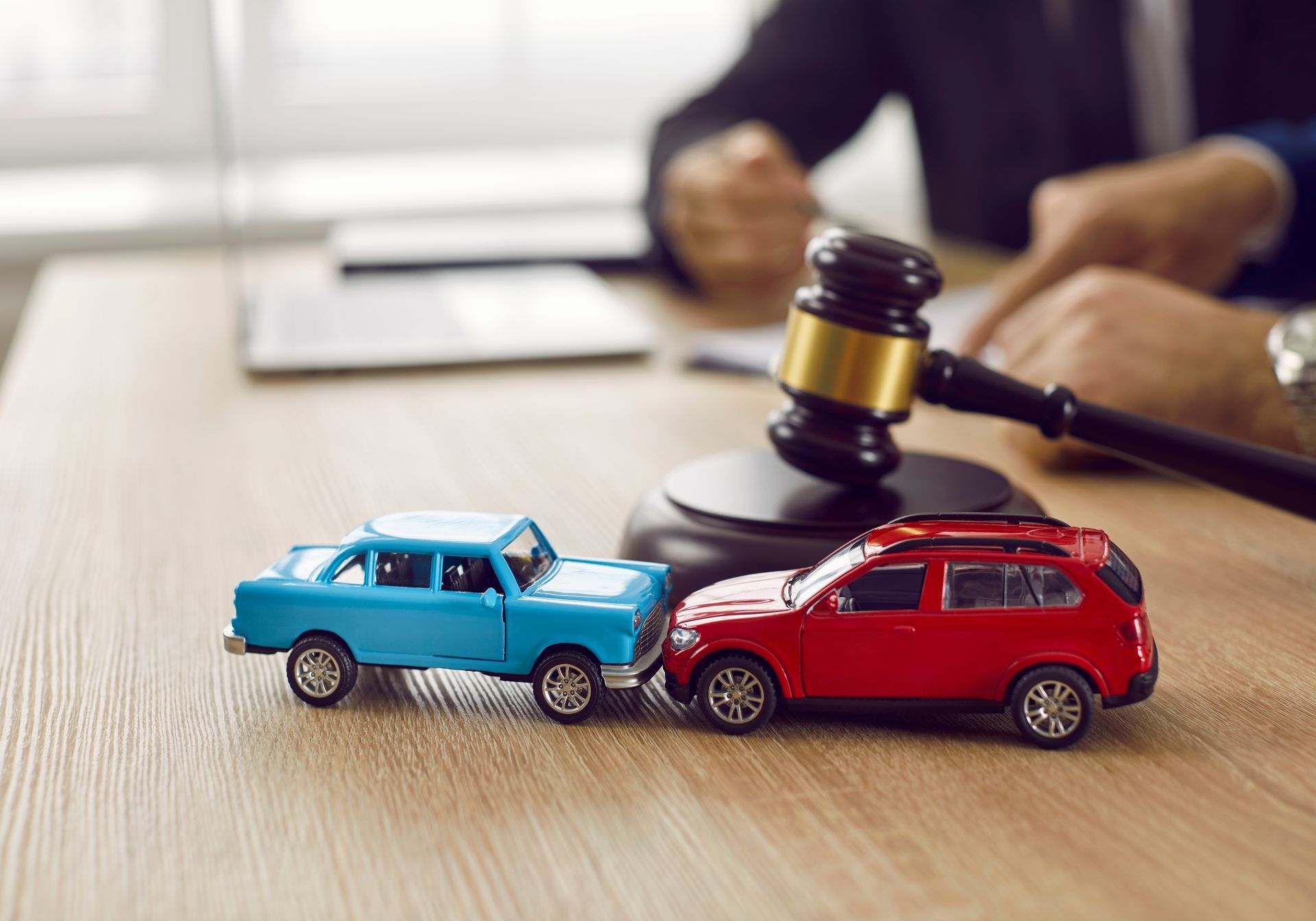
Finding the Right Atlanta Car Accident Attorney Is Crucial
Finding the right car accident attorney to suit your specific case and your temperament is crucial to the outcome. While car accident lawyers in Atlanta are plentiful, not all have the experience, in-depth legal knowledge, or courtroom expertise to secure a successful outcome.
It’s important for you, as a potential client, to understand why specialization matters. Not all lawyers are created equal; not all have decades of experience with personal injury law or vehicle accidents. Some have minimal courtroom experience. An expert car accident attorney will have detailed knowledge of Georgia traffic law and insurance policies and a long track record handling cases like yours. Take the time to find a car accident legal specialist with a track record of keeping client interests front and center.
Timing also plays a part when hiring an attorney. Consult with an attorney sooner rather than later. Early legal advice can save you stress and prevent costly missteps that could harm your case. During your initial consultation, ask about their experience negotiating with insurers and arguing cases in court. Ask about the comprehensive process of gathering evidence and traffic law to assess their skill level.
Client communication and synergy cannot be undervalued. If you work and communicate well with your attorney, it is definitely an advantage that saves time and stress. Open communication is paramount to an excellent attorney-client relationship. You must trust each other. Seek out an attorney whose experience and demeanor fit your own and who values keeping you informed throughout the process.
Don’t forget to vet your potential attorney. Research their successes in previous cases similar to your own. This is a good indicator of competence. Don’t hesitate to ask for references or how they handle car accident cases. A confident attorney will happily share their success stories and explain how their strategy benefits your case.
Since you’re undoubtedly suffering financial consequences from the accident, asking about the financial aspect is appropriate. Most car accident attorneys will work on a contingency fee basis, meaning they only get paid if they win your case. Understanding their fee structure and precisely what is or is not expected of you is crucial before hiring an attorney. Lawyers working on a contingency basis give you the peace of mind you need to proceed with your case and know there is no financial risk for you.
Finally, find a local car accident lawyer in Atlanta. A legal professional well-versed in Atlanta’s legal system, Georgia traffic law, and local driving conditions can make all the difference to the outcome of your case.
Benefits of Hiring an Established Law Firm After a Car Accident
After a car accident, victims can expect to navigate a confusing labyrinth of medical, financial, and legal issues. Hiring a legal team at an established law firm can be a godsend. A firm with a wealth of expertise has the knowledge and experience necessary to win your case, as they have undoubtedly won countless similar cases. A team with an in-depth understanding of personal injury law and negotiation tactics will play to your advantage.
Hiring an established firm gives you access to seasoned attorneys who spent many years honing their skills both in and out of the courtroom. This expertise can be the trump card for getting a maximum settlement. Established law firms also possess the resources to conduct investigations and hire expert witnesses on your behalf.
An established firm with an excellent reputation in the community can be a significant advantage when negotiating with insurance companies. Insurers will recognize their commitment and tenacity and present a more favorable settlement from the start. Hiring an established, reputable firm elevates the quality of representation you receive so you can focus on what’s important: your recovery.
Car Accident Legal Help FAQs
Q. How long do you have to file a car accident claim in Georgia?
A. The statute of limitations for filing a car accident claim in Georgia is two years from the date of the accident for personal injuries. For property damage, you have four years from the date of the accident.
Q. What should you do in the days following a car crash in Atlanta?
A. Your first priority should be your well-being. Seek medical attention even if you don’t think you’re injured. Keep records and receipts of all medical visits and procedures. Document everything crash-related with photos and videos. Gather and keep safe all witness contact information. Notify your insurer about the accident, but don’t make any formal statements without consulting a qualified attorney.
Q. How does Georgia calculate fault in vehicle accidents?
A. Georgia operates under a modified comparative negligence rule. This means fault is calculated by determining each party's share of negligence contributing to the accident. If you're less than 50% at fault for the collision, you can claim damages; however, they will be reduced by your percentage of fault.
Q. When should you talk to a car accident lawyer?
A. Talk to a car accident lawyer in Atlanta as soon as possible following an accident. A lawyer will protect your rights and critical evidence.
Q. What damages are available for car accident victims?
A. Car accident victims may be eligible for damages that include medical costs, lost wages, property damage repair costs, and pain and suffering. If egregious conduct was involved, punitive damages might also be awarded.
Conclusion
Hiring the right Atlanta car accident attorney is a decision that will significantly impact the outcome of your case. Careful consideration of their specialization, diligence, communication style, track record, financial terms, and local knowledge will ensure you hire a skilled professional advocating for your rights.
Get a Free Consultation from Atlanta's Top Car Accident Attorneys - Zdrilich Injury Law Group
Car accidents leave you dealing with injuries, piles of medical bills, and emotional stress. But you don’t have to wrestle with this on your own. Let the dedicated legal experts at Zdrilich Injury Law be the superhero you need right now.
As Atlanta's premier car accident attorneys, we expertly navigate the complexities of auto accident law to secure the best possible outcome for our clients. Everyone deserves top-tier legal representation to protect their rights after an accident.
To demonstrate our commitment, we offer a free, no-obligation consultation. During this session, you'll speak directly with an experienced attorney who will evaluate your case, answer any questions, and outline a winning strategy for maximum restitution.
Contact Us
Don't let the insurance companies goad you into a quick settlement. Stand strong with Atlanta's top car accident attorneys on your side.
Contact us today to schedule your free consultation and turn the tide in your favor.
Contact us Today
Do you need to speak with a Duluth personal injury attorney? Zdrilich Injury Law is ready to help.
Contact Us
Joe in the News
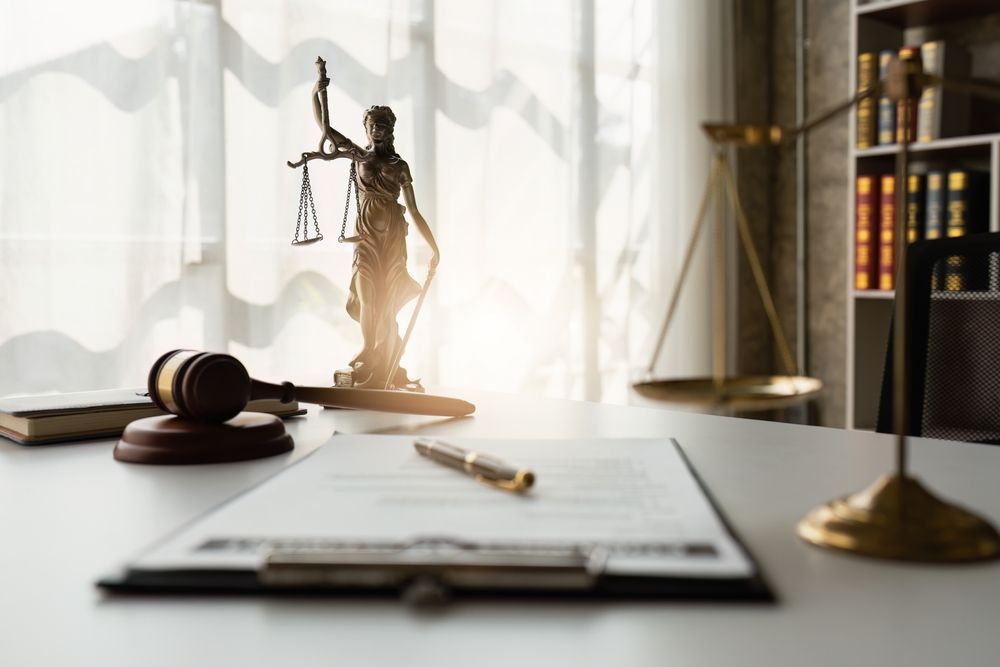
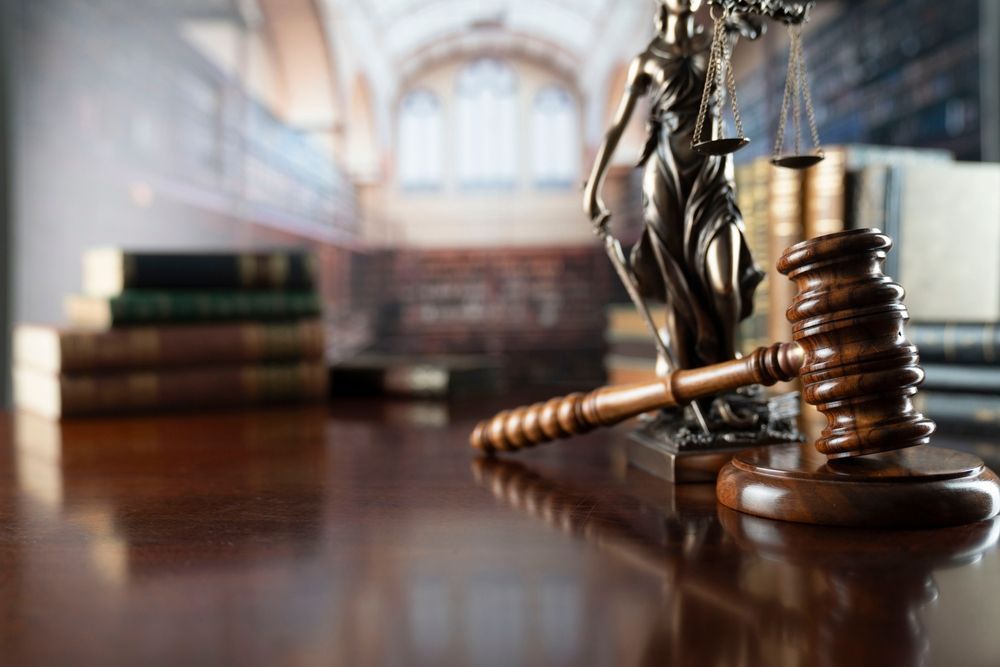
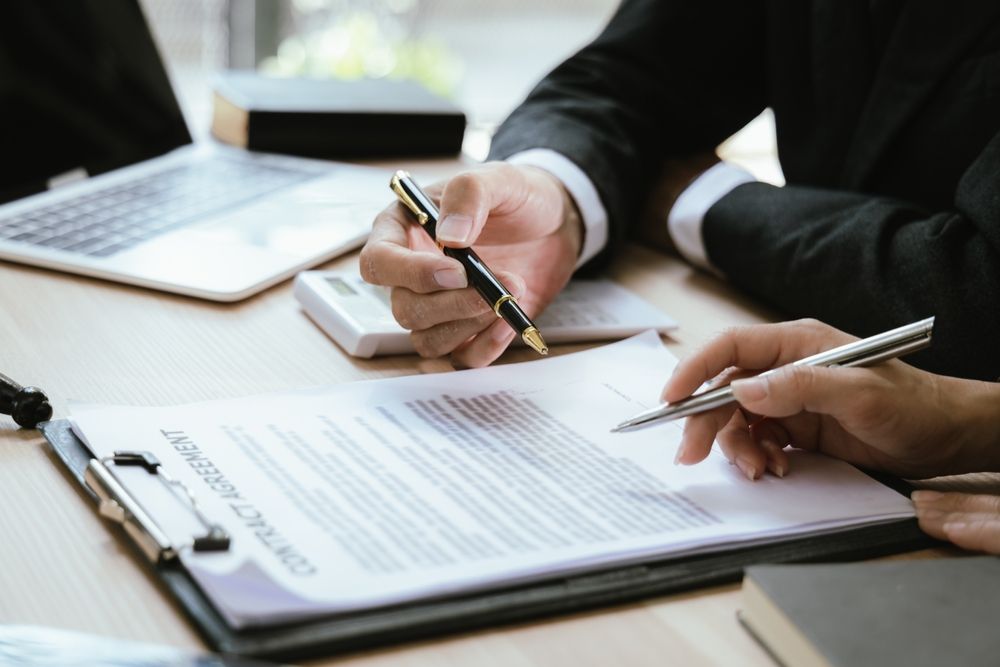
QUESTIONS AFTER A CAR ACCIDENT
Frequently Asked Questions
GET A FREE CONSULTATION TODAY
INJURED? TAKE YOUR LIFE BACK!
Zdrilich Injury Law is committed to helping injured Georgians receive the money they need to recover physically and financially after an accident.
